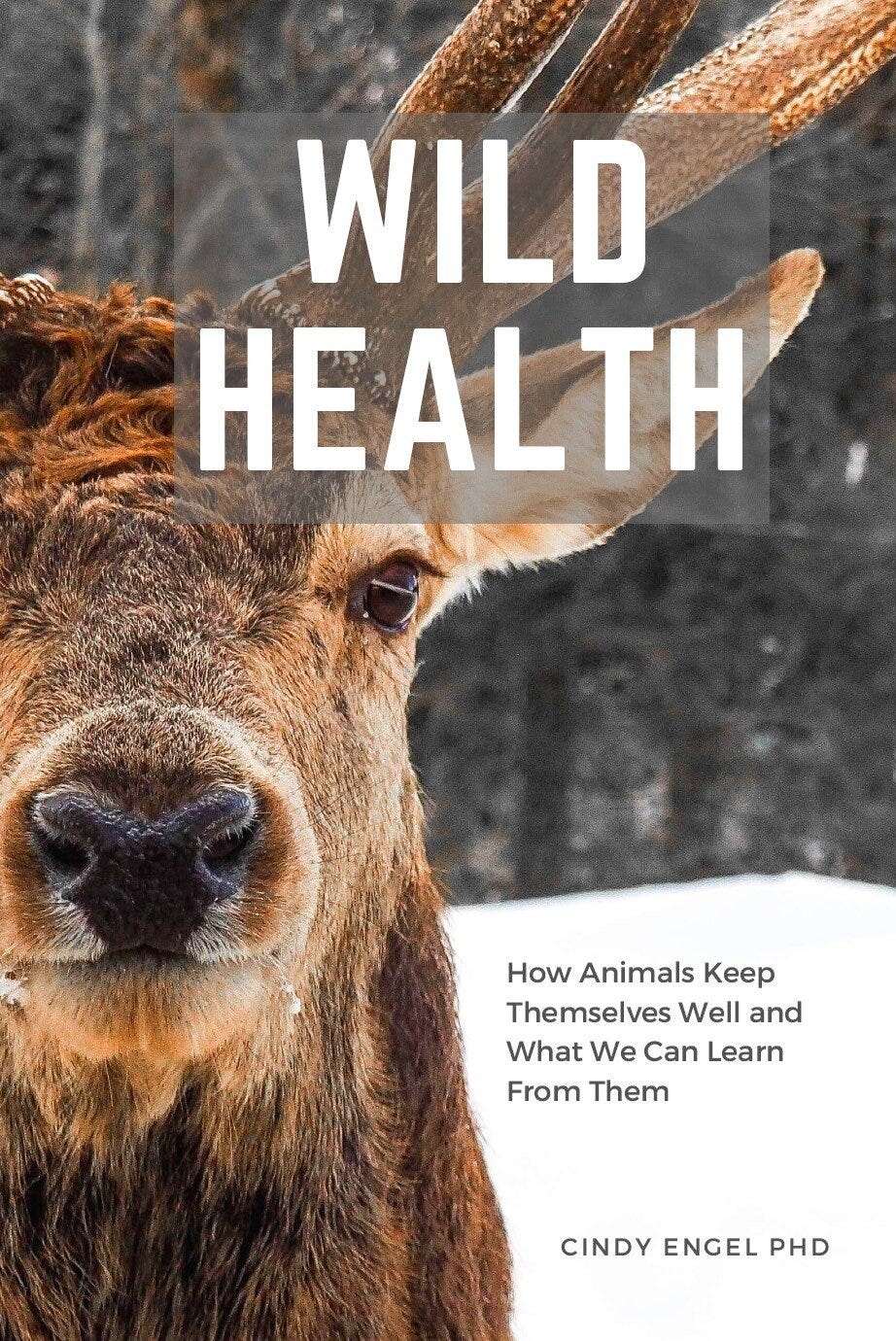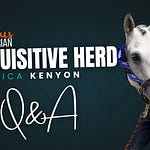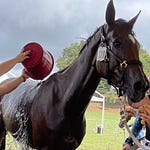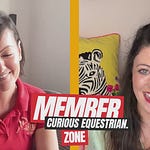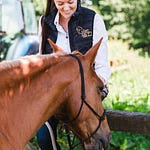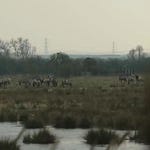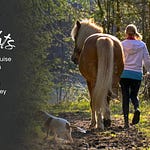Have you ever watched your horse desperately trying to reach that "poisonous" plant you've been told to fence off, and wondered if they might actually know something you don't? This conversation with research biologist Dr Cindy Engel will completely change how you think about your horse's natural instincts, and why diversity, not perfection, might be the key to their wellbeing.
Week's Deep Dive
Guest: Dr Cindy Engel, research biologist, author, and bodywork therapist
Key Topics:
Why domesticated horses have lost their "animal wisdom" and what we can do about it
The crucial difference between nutrients and medicine in what horses seek
How Monty Roberts' breakthrough with wild mustangs reveals the power of somatic empathy
Practical ways to provide variety and choice in restricted environments
The Big Takeaway
Diversity is everything. Dr Engel's decades of research into animal self-medication reveals that wild animals don't rely on innate wisdom; they rely on trial and error, peer learning, and access to incredible variety in their environment. Our domesticated horses have been stripped of both the knowledge and the options they need to self-regulate their health. The answer isn't to panic about every "toxic" plant, but to thoughtfully provide as much diversity as possible and trust what's left of their instincts to guide them.
This isn't just about physical health; it's about giving horses back some autonomy and choice in a world where we've made most of their decisions for them.
Check out her book ‘Wild Health’
Three Things That Stood Out
1. "They're looking for an effect, not a nutrient"
When your horse is desperately reaching for those blackberries during a hack, they're not thinking about vitamin C content. They're following the same trial-and-error process that helps wild animals manage everything from upset stomachs to worm loads. As Engel explains, animals nibble plants and sense the physiological response and if something makes them feel better, they eat more. If it makes them feel worse, they stop. This simple feedback system is far more sophisticated than our human obsession with specific nutrients.
2. The charcoal revelation
Every plant-eating animal in the wild seeks out clay or charcoal, not for minerals, but as "mechanicals" that bind plant toxins and allow safe excretion. When Dartmoor ponies congregate around fire sites to nibble charcoal, they're accessing an ancient health maintenance strategy. This knowledge transforms how we might think about providing our horses with bentonite clay licks or even allowing access to appropriate charcoal sources.
3. Monty Roberts and the broken boy
The most powerful moment in our conversation came when Engel described how Monty Roberts' breakthrough with horses emerged from his own trauma. As an abused child who identified with beaten horses, Roberts developed extraordinary sensitivity to equine communication by living with wild mustangs. His discovery that "if you are brutal and scary, you've just got a scared horse" revolutionised horse training and revealed the profound truth of somatic empathy , how our emotional states directly impact the animals around us.
Deep Dive
The Domestication Dilemma
Wild horses have access to an extraordinary pharmacy. They learn from wise elders in the herd, experiment safely with diverse plant communities, and maintain health through sophisticated social learning. Our domestic horses, no matter how well-cared for, live in what Engel calls a "closed loop" of limited choices, no mentors, and often monoculture grassland that offers nothing for self-medication.
We’re not talking about returning to some romanticised wild state, but about understanding what we've taken away and finding creative ways to restore some of those options. When commercial deer farmers in New Zealand allowed "weeds" back into their manicured pastures, veterinary costs plummeted. The lesson is clear: perfection might be the enemy of health.
Beyond Good and Bad Plants
Our binary thinking about "safe" versus "toxic" plants misses the crucial concept of dosage. Many plants that can poison in large quantities serve as medicine in small amounts. Engel's research shows that astringent plants help grazing animals manage worm loads, while the acorns we frantically fence off might be exactly what horses need, just not in massive mast-year quantities!
This doesn't mean becoming cavalier about genuinely dangerous plants, but rather developing a more nuanced understanding of how animals use their environment as pharmacy. Sometimes that "naughty" behaviour of reaching for hedge plants during a hack is actually a horse trying to tell us something important about their health needs.
The Revolution in Horse-Human Connection
The story of Monty Roberts illuminates something profound about how emotional states transfer between species. When Roberts, broken by abuse, lived among wild mustangs, he discovered that horses respond to our internal state, not just our training techniques. This concept of somatic empathy, where physiological states synchronise between beings, explains why some people seem to have a "magic touch" with horses while others struggle.
Modern research confirms what Roberts intuited: horses are hypervigilant for anxiety and threat, and emotions spread through herds without conscious thought. This knowledge transforms every interaction we have with horses, from daily care routines to riding. The trust technique Engel mentions, where practitioners use mindfulness meditation to achieve such calm that horses lie down beside them, demonstrates the extraordinary power of this connection.
Questions for Reflection
What assumptions am I making about my horse's "bad" behaviour that might actually be communication about their health needs?
Consider that reaching for hedge plants, digging, or wood chewing might not be vices to correct but messages to interpret. How might you create opportunities for safe exploration of these behaviours?
How can I bring more diversity into my horse's world, even within the constraints of modern horse keeping?
Whether through track systems, slow feeders with different contents, or regular foraging walks, what creative solutions might work for your situation? Remember, even small changes towards variety can make a significant impact.
What emotional state am I bringing to my horses, and how might that be affecting their wellbeing?
Horses don't understand our human complications, but they feel our emotional states acutely. How might developing greater awareness of your own internal state transform your relationship with your horse?
Join the Conversation
What resonated most with you from Dr Engel's insights? Have you noticed your horse seeking out particular plants or behaviours that might be self-medication attempts? Share your observations in the comments below; these real-world experiences often provide the most valuable learning for our community.
🌿 Botanicals Inspired by Wild Wisdom Curious about supporting your horse’s health through self-selection?
These traditional botanicals reflect the natural foraging strategies discussed in this episode:
🍃 Hawthorn Flower & Leaf – Traditionally used to support circulatory and cardiac health
🌿 White Willow Bark – A natural source of salicylates, often used for comfort and inflammation
🌼 Chamomile Whole Herb – Known for its calming and digestive support properties
These are affiliate links. We may earn a small commission at no cost to you. Thank you for supporting Curious Equestrian and helping us share evidence-based, horse-first insights.
Want early access to these deep dives plus exclusive member Q&As with our guests? Join as a paid subscriber for detailed follow-ups and the chance to submit questions for future episodes.



